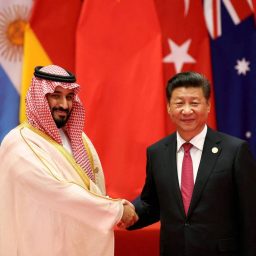Reconciliation in Motion: Erdogan and Al-Sissi Meet at G20 Summit

Photo:Reuters
On Sunday, in a potentially history-making rendezvous, Turkish President Recep Tayyip Erdogan met with his Egyptian counterpart, President Abdel Fattah Al-Sissi. The meeting took place on the sidelines of the G20 summit in New Delhi, marking an effort to thaw relations between the two nations after a decade of diplomatic strain. Throughout the recent years, the relationship between Turkey and Egypt has been marked by political tension and disagreements on a series of regional issues. The tensions were exacerbated following the 2013 overthrow of Egypt’s first democratically elected President, Mohamed Morsi, a close ally of Erdogan, by then-military chief Al-Sissi. Since then, the diplomatic relations have been frosty, with Turkey and Egypt often finding themselves on opposite sides of regional conflicts. The meeting between Erdogan and Al-Sissi indicates a potential turning point in bilateral relations and reflects a shared understanding of the need for dialogue and cooperation in a region beset by numerous crises. The fact that this meeting occurred at the G20 summit underscores the importance of international platforms in fostering diplomatic engagement and in mediating conflicts.
The specifics of the meeting are yet to be fully disclosed, but it is understood that the leaders discussed a range of topics, including bilateral relations and regional issues. Both nations have substantial influence in the Middle East and North Africa and their cooperation or divergence can significantly impact the geopolitical landscape of these regions. It is widely speculated that the meeting might lead to a normalization of relations, which could have significant implications for regional politics. Both Turkey and Egypt hold pivotal roles in the Middle Eastern sphere and their potential collaboration could foster stability and balance of power in the region. The meeting also comes at a time when both countries are grappling with economic challenges and domestic issues. A renewed partnership or even a de-escalation of tensions could prove beneficial on a domestic level, opening up new avenues for trade and economic cooperation. Furthermore, the reconciliation could also impact the broader international community. A potential Turkish-Egyptian rapprochement could alter alliances and power dynamics, not just in the Middle East, but also in the broader context of international politics. However, it is important to note that this single meeting does not necessarily signify an immediate resolution of all differences. There are a number of longstanding disagreements and conflicts of interest that need to be addressed. It will be interesting to observe how both leaders navigate these challenges in the coming months. In conclusion, the meeting between Erdogan and Al-Sissi marks a significant step towards a potential thaw in Turkish-Egyptian relations. While it is too soon to predict the exact outcomes, this development is certainly a move in the right direction. It demonstrates the leaders’ willingness to engage in dialogue and work towards common goals, a positive sign for both countries and the region as a whole.
By Sara Colin
















